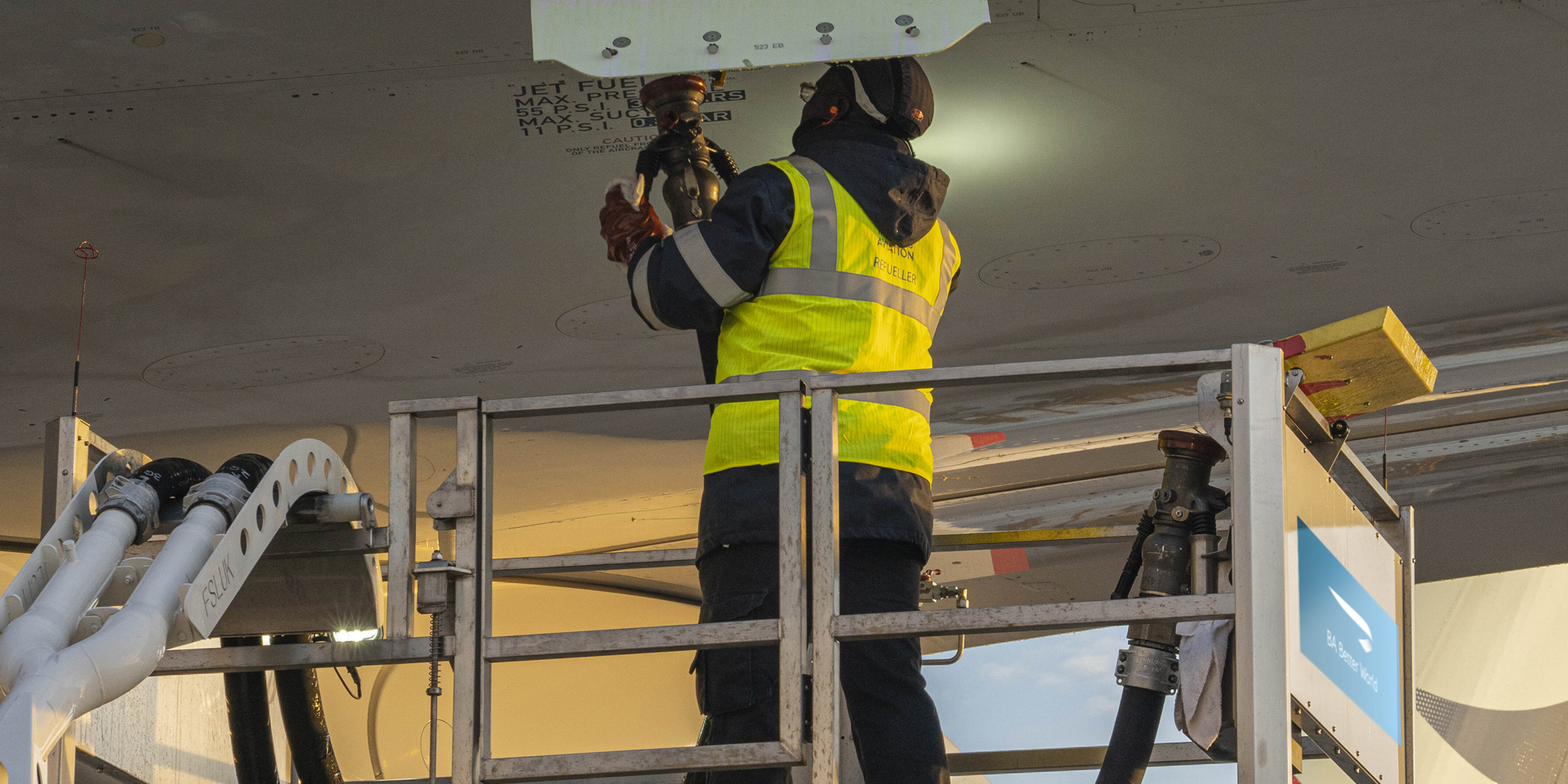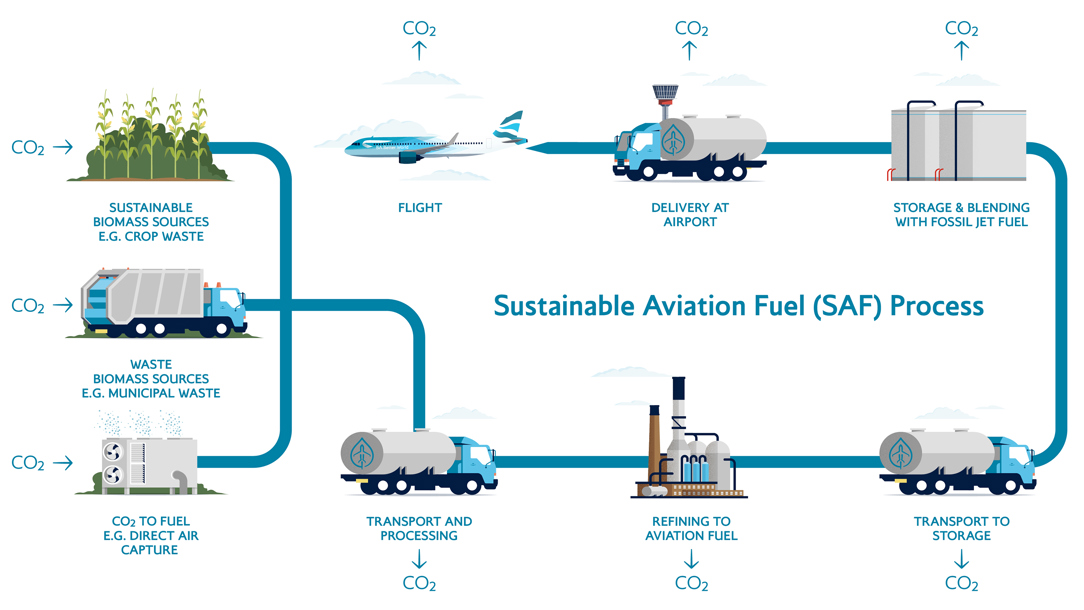

Earn tier points and Avios when you contribute to Sustainable Aviation Fuels (SAF)
Earn tier points and collect Avios when you contribute towards Sustainable Aviation Fuels (SAF)*, making it even easier to be rewarded without having to travel
20/06/2025
We know how important tier points are to you as a member of The British Airways Club. Which is why we’re introducing a new way to earn tier points and collect Avios at the same time.
Any contribution you make to SAF via our dedicated platform will reward you with tier points and Avios. This is a great way to earn tier points without travelling and could be the boost you need to reach that next tier.
What’s more, when you contribute to SAF through our dedicated online tool, you can choose to pay for some, or all your contribution, using Avios.
A contribution of £1,000 or 125,000 Avios will earn 1,000 tier points and 10,000 Avios. The maximum amount you can earn through your contribution is 1,000 tier points per tier point collection year. To find out more and make your contribution visit our dedicated platform.
What is SAF?
SAF is defined in the Refuel EU Aviation Regulation as aviation fuels that are either synthetic aviation fuels, aviation biofuels or recycled carbon aviation fuels. For further information, please visit BA Better World.
SAF produces similar levels of carbon dioxide to conventional aviation fuels when burned, but the carbon dioxide generated is already part of the carbon cycle and is not extracted from the ground specifically for creating aviation fuel. This means that using SAF results in a reduction in carbon emissions compared to the traditional jet fuel it replaces over the lifecycle of the fuel. A major challenge is that SAF availability remains low globally and today accounts for 2.7 per cent of our total fuel.

As SAF is similar in chemistry to traditional fossil jet fuel, it can be dropped straight into existing fuel supply infrastructure and aircraft without modification. As a result, it’s the readiest solution to reduce the carbon emissions associated with aviation. Emission reductions from the use of SAF are measured as the reduction of carbon emissions on a greenhouse gas lifecycle basis, typically by 80 per cent or more compared with the fossil jet fuels it replaces.
Alongside our parent company IAG, which has so far committed $3.5bn to SAF investments and purchases, we see progressing the development and commercial deployment of SAF as crucial to reducing the carbon emissions associated with aviation. It is a key part of our plans to reach net zero carbon emissions by 2050 and we will be fuelling our aircraft with at least ten per cent SAF by 2030, in line with the UK government’s SAF mandate. This includes investing in SAF plants in the UK and US to scale up the availability of SAF. We currently use, or plan to use, SAF produced from used cooking oil, woody biomass, used tyres or orchard and forestry waste.
We were the first airline in the world to use SAF produced on a commercial scale in the UK after signing a multi-year agreement with Phillips 66. And in 2024, IAG made its largest SAF purchase agreement to date with producer Twelve for the supply of e-SAF, an advanced form of power-to-liquid SAF made from carbon dioxide, water and renewable energy.
BA Better World
When we launched the BA Better World programme in September 2021, it marked the beginning of a long-term vision to transform our airline. We said it was our most important journey yet and that remains true today.
Our BA Better World programme is focused on where we believe we can make the biggest impact for our business, our customers and for society – People, Planet and Responsible Business.
As a hard to abate sector, we know we have more work to do. But we remain committed to tackling the causes of our environmental and social impact, to help build a more sustainable future. Learn more by visiting our 2024 BA Better World report.
*Sustainable Aviation Fuels (SAF) are defined in the Refuel EU Aviation Regulation as aviation fuels that are either synthetic aviation fuels, aviation biofuels or recycled carbon aviation fuels. For further information, please visit BA Better World.





